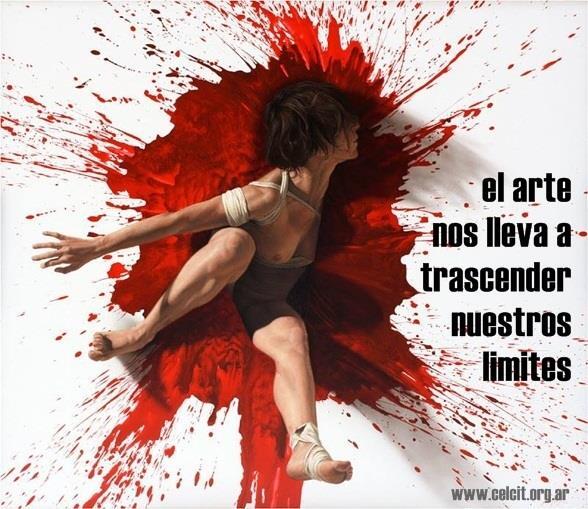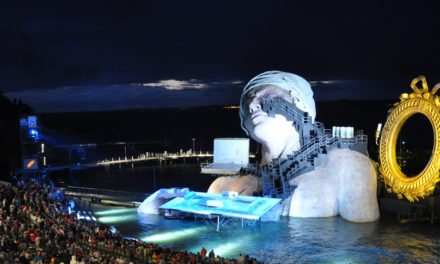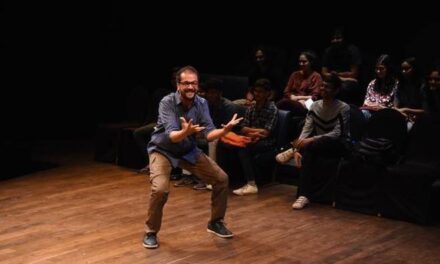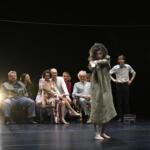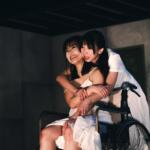The Latin American Center for Creation and Theatrical Research, CELCIT (www.celcit.org.ar) was born in Caracas, Venezuela, in 1975.
It is an institute of the performing arts, facilitating communication between playwrights from Latin America, Spain, and Portugal; at the same time, it hosts research, training, promotion and dissemination of Latin American performing arts in the world. CELCIT’s work applies to this very specific field, pursuing the integration of Latin American countries, Spain and Portugal.
CELCIT is an excellent source of knowledge about Latin American and Spanish Theatre. The organization holds meetings and festivals that allow contact between Spain, Portugal, and Latin America countries. Another feature is the constant presence of Argentine and foreign teachers in their workshops; and, finally, their publications—Theatre Magazine / CELCIT; Latin American Drama; Theater: Theory and Practice; Creation—and the CELCIT TV channel. It is possible to access all publications for free through the institution’s website, which receives, at present, more than 100,000 visits each month from all over the world.
CELCIT in Latin America and the World: Offering New Online Courses on Theatre March 1 through June 30, 2017
Argentina’s branch of CELCIT is one of the most famous headquarters of this organization in terms of its trajectory since it began its activities in 1979. Currently it is offering many intensive online workshops and courses, delivered by recognized theatre professionals, to be taught between March 1 and June 30, 2017:
- Workshop on Staging, by Rubén Szuchmacher (Director)
- Workshop on Dramaturgy, by Ignacio Apolo (Playwright)
- Creative Dramaturgy Workshop, by Ariel Barchilón (Director/Author)
- Dramaturgy for Children’s and Adolescent Theatre, by María Inés Falcóni
- Theatre Pedagogy: A Possible Gaze, by Debora Astrosky
- Theatre Production, by Gustavo Schraier
- Management for Theater Productions, by Paula Travnik
- Audience Management for Scenic Arts, by Silvia Peláez, México
- Art Festivals Organization, by Maris de León, México
- Press and Marketing through Social Networks, by Paula Simkin and Daniel Franco
- Critical Appreciation of Theater, by Nara Mansur and Celia Dosio
- Footprints of Avant-Garde Theatre, by Carlos Fos
- History of Latin American Theatre, by Magaly Mugercia, Cuba
You can access conditions and registration information at www.celcit.org.ar
Besides the multiple stagings that CELCIT is always offering, through the end of 2016 there is an ongoing Short Pieces Theatre Festival called the Twice as Good Festival. The subject is about and for the Argentinean Independence (1816–2016), with the dramaturgical supervision of Ariel Barchilón.
Incorporated as a Nonprofit Civil Association, over the years his work has spread dramatically, particularly with regard to productions and co-productions, permanently supporting innovative and experimental theatre plays.
Another important aspects are the holding of meetings and festivals that allow contact the Argentine public of the most important shows produced in Spain and Latin America (Iberoamerican) the constant presence of Argentine and foreign teachers in their workshops, the promotion of Argentine and Latin American theater in the country and the world, and finally the publications: Theatre / CELCIT, Latin American Drama, and Theater: Theory and Practice,
Creation, CELCIT TV channel and the institution site on the Internet, which receives, at present, more than 100,000 monthly visits, where you can access all the publications for free.
The CELCIT has been honored with over 40 awards from various institutions, and the Ministry of Culture of the Nation and the Buenos Aires City Legislature has declared their activities of cultural interest.
Director: Carlos Ianni. Management Team: Teresita Galimany, John Lepore. Secretariat: Andrea Albano, Maria Svartzman
This post was written by the author in their personal capacity.The opinions expressed in this article are the author’s own and do not reflect the view of The Theatre Times, their staff or collaborators.
This post was written by Lola Proaño Gomez.
The views expressed here belong to the author and do not necessarily reflect our views and opinions.

